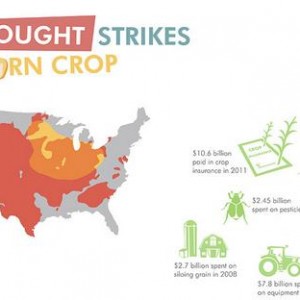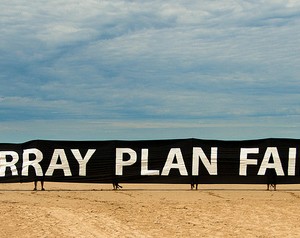Federal Water Tap, February 4: EPA Releases 2013 Biofuel Standards
The Environmental Protection Agency released the volume-standards for renewable fuel production in 2013. Ten percent of all transportation fuel will come from renewable sources, which works out to 62.65 billion liters (16.55 billion gallons) from conventional biofuel and 53 million liters (14 million gallons) of cellulosic biofuel. Other contributions to the standard come from bio-diesel and from advanced biofuels, which are made from ethanol sources other than corn starch.
However, on January 25, a federal appeals court invalidated the EPA’s 2012 cellulosic biofuel mandate because the agency overestimated its production projections. Only 76,000 liters (20,069 gallons) of such fuels were produced last year, despite a mandated volume 431 times larger. The 2007 legislation that created the cellulosic fuel standard envisioned 1.89 billion liters (500 million gallons) of the stuff by 2012.
Climate Change Affects Coasts
Coastal economies generated roughly 57 percent of U.S. gross domestic product in 2010 and climate change will challenge their ability to provide these economic benefits, according to a 230-page technical report for the 2013 National Climate Assessment, a report that considers how climate change will affect the United States. The technical report looks at the 35 states or territories that border the ocean or the Great Lakes.
Sacramento-San Joaquin Delta
The Bureau of Reclamation filed its final environmental review of a proposal to transfer up to 185 million cubic meters (150,000 acre-feet) of water from land fallowing or water conservation over the 25 years. The water would be available to wildlife refuges, municipalities, industry or agriculture.
The Army Corps of Engineers announced that it would began its own environmental review for ecosystem restoration and flood protection in the Sacramento-San Joaquin Delta. Public meetings will be held later this month and a draft review should be completed by 2014.
Murkowski’s Energy Blueprint
Alaska Senator Lisa Murkowski, the ranking Republican on the Energy and Natural Resources Committee, unveiled her blueprint for U.S. energy development. The water-energy nexus is key, she writes in the 123-page document. To address the problems, she proposes a program heavy in research, planning, and efficiency, but light in the details.
Higher Costs for Hoover Dam Electricity
The Department of Energy agency that markets electric power in the western United States is proposing a 5 percent rate increase for electricity from Hoover Dam, in part because low water levels in Lake Mead have cut the amount of power generated by the dam. Details about the proposed increase will be available at a public meeting March 27 in Phoenix. Documents related to the rate increase will be posted here.
Senate Hearing
On Thursday, the Senate Committee on Environment and Public Works will hold a hearing to discuss the water resources policies of the Army Corps of Engineers. A list of witnesses is not yet available.
Trade Mission
The Commerce Department will sponsor a trade mission to Egypt in April for U.S. companies to investigate investment opportunities in Egypt’s electric power and water infrastructure. The Egyptian government announced last year that it would upgrade a wastewater treatment plant near Cairo at a cost of $US 990 million.
Federal Water Tap is a weekly digest spotting trends in U.S. government water policy. To get more water news, follow Circle of Blue on Twitter and sign up for our newsletter.
Brett writes about agriculture, energy, infrastructure, and the politics and economics of water in the United States. He also writes the Federal Water Tap, Circle of Blue’s weekly digest of U.S. government water news. He is the winner of two Society of Environmental Journalists reporting awards, one of the top honors in American environmental journalism: first place for explanatory reporting for a series on septic system pollution in the United States(2016) and third place for beat reporting in a small market (2014). He received the Sierra Club’s Distinguished Service Award in 2018. Brett lives in Seattle, where he hikes the mountains and bakes pies. Contact Brett Walton






Leave a Reply
Want to join the discussion?Feel free to contribute!